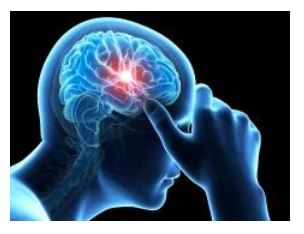Meniere’s Disease? Vestibular Migraine? Or is it the same thing?
Table of Contents

Many people who have been diagnosed with Meniere’s disease often complain of suffering from migraine headaches yet many do not.
It is true that the severity of symptoms can vary from person to person and the absence of one or more symptoms is common. We are all different and can have different environments, lifestyles, eating habits, fitness levels, additional health problems, stress levels, triggers and root causes.
“ENT doctors know that many patients with inner ear problems have headaches, and neurologists know that many patients with migraine have inner ear problems,” according to Jason D. Rosenberg, MD, assistant professor of neurology and director of the Johns Hopkins Headache Center. Many experts think that BPPV, Meniere’s disease, migraines, and vertigo are all related conditions on the same spectrum.
Study suggests an overlap with vestibular migraine and Meniere’s disease
A study published in Frontiers of Neurology in 2014 looked at the overlap of Meniere’s disease and vestibular migraine, the two most common causes of spontaneous recurrent vertigo. In 268 patients with either disorder, it was found that a subset of patients with Meniere’s experienced migraine headaches, and some vestibular migraine patients complained of auditory symptoms like tinnitus and hearing loss, as seen in Meniere’s.
“Meniere’s disease is a common confounder. An audiogram is a simple test that can be helpful. Patients with Meniere’s will usually have a unilateral, significant sensorineural hearing loss. Patients with vestibular migraine may have a milder, bilateral hearing loss,” says Jonathan H. Smith, MD, assistant professor of neurology at the University of Kentucky College of Medicine..
In addition to otologic causes of vertigo, other disorders in the differential diagnosis include acoustic neuroma, brainstem lesions, post-traumatic headache or vertigo, and vascular abnormalities. “Throw in MS, stroke, and infection. Neurologic findings that are red flags include ataxia, skew, diplopia, cranial nerve abnormalities, visual field loss, and static imbalance,” says Rosenberg.
Meniere’s Disease or Vestibular Migraine?
From the NIH this article (Meniere’s Disease and Vestibular Migraine: Updates and Review of the Literature), it states: “The diagnosis of Meniere’s disease (MD) and vestibular migraine (VM) is primarily based on clinical criteria and their differentiation is often difficult. Currently, there are no known definitive diagnostic tests that can reliably distinguish the two conditions. Patients with MD and patients with VM are treated differently, therefore improving the diagnosis of these two pathologies should avoid errors in management.”
“Among other differences, MD showed later age of onset, more hearing loss, tinnitus, aural fullness, abnormal nystagmus, abnormal caloric testing results, abnormal vestibular evoked myogenic potential and endolymphatic hydrops. VM showed more headaches, photophobia, vomiting and aura.”
A closer look at Meniere’s will show you that like many conditions, it is merely a set of symptoms lumped together under one label. It is an idiopathic condition, meaning a set of symptoms that has no definitive known cause. Yet the root cause or causes can be found. Once you have identified your cause or causes (there may be more than one contributing to your condition) by the very definition of idiopathic, you can no longer class yourself as having Meniere’s. Herein lies the problem. It is a problem of perception.
The bottom line is that you can find your individual cause and eliminate it from your life and as a result eliminate Meniere’s or rather all your symptoms from your life and regain your health.
What are your experiences with Meniere’s and Migraines. Have you been able to free yourself of your symptoms?
If you found this article and site useful Click here to support Meniere’s Help paypal.me/menieres
Related articles:
Help other sufferers:
Tell us about your experiences and thoughts on the article above in the comments box below or email Mike at meniereshelp@gmail.com
References/Further reading: